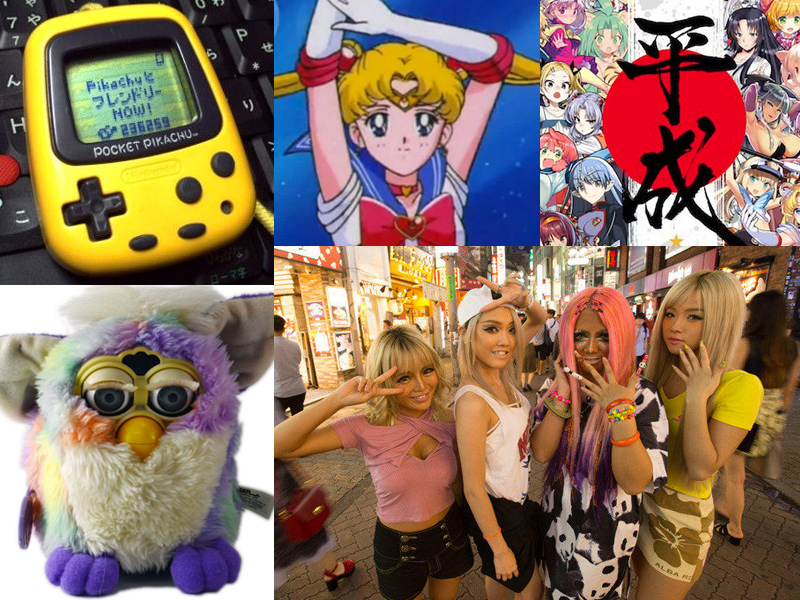Japan is buzzing this week after the release of the World Happiness Report, a publication put out every year by the United Nations which ranks the subjective “happiness” of all the countries in the world. You might consider Japan to be a pretty happy place: they’ve got everything from a strong and stable (if not rapidly growing) economy to excellent healthcare and a peaceful society free from violence, to say nothing of catgirl maid cafes and toilets that wash your butt for you. But you’d be wrong, as the Japan World Happiness ranking was… 58, four spots lower than last year’s score of 54.
The report looks at a variety of factors, including GDP output per person, the level of corruption in politics and business, the state of a social safety net, political and economic freedom, and amount of leisure time. Japan ranked at the top for healthy life expectancy, but was hurt by a low score in “generosity towards others.” The U.K. scored position 15, Germany 17 and the U.S. 19, while Asian countries came in at 25 for Taiwan, 34 for Singapore and 54 for South Korea. Predictably, the top five spots were occupied by Finland, Denmark. Norway, Iceland and the Netherlands.
Naturally, I’ve got some opinions on the report. The biggest issue is that when you view the world through a Northern European lens and rank all other countries by what you see, you can end up with some pretty useless results. The values of people in Northern European countries are clearly going to be different from those of farmers in rural South Korea or pipeline engineers in Kazakhstan or salarymen in Tokyo. There are many factors that wouldn’t be visible from afar, for example, the strong tendency of Japanese to be humble and self-effacing when asked to describe themselves, and likely their personal happiness, to outsiders. There could be other unique cultural factors at play for other countries, too.
The situation is similar to the main ranking of gender equality around the world, published by the World Economic Forum based in Geneva, Switzerland, which ranks the situations of women for economic participation and opportunity, educational attainment, health and political empowerment. This 2018 listing ranks Japan at 110 (down from 97), worse than India (108) and Cambodia (93) and ahead of Sierra Leone (114), the United Arab Emirates (121) and Turkey (130).
I always shake my head when I see this ranking. The Japan that I’ve observed, both teaching ESL and running J-List for 20+ years in rural Gunma and now living in sprawling Tokyo, does offer incredible opportunities for education for women and a wide range of career choices. What’s more, the vast majority of new mothers in Japan have the option to halt work for 1-6 years to raise their children, since it’s not impossible to survive on the father’s salary alone in low-inflation Japan, which I consider to be a significant economic achievement. In addition, the reported rate of violence against women in Japan appears to be 1/96th that of South Africa, a country that manages an impressive 19 on the gender equality chart. (Source, back of the envelope calculations based on 2010 numbers from Wikipedia.)
What if Japan made world ranking based on its ideals, rating all countries in the world on how closely they aligned with Japan’s tradition of giri and nijo (dramatic concepts from the Edo Period that express the balance between an individual’s responsibilities compared with wanting to follow his own heart’s wishes), or its appreciation with “less is more” found in Zen Buddhism, or how closely countries followed the Confucian concept of oya-koko or filial piety. In case you’ve never heard the word, filial piety means giving respect to your parents no matter what, and really is a concept I observe almost on a daily basis in Japan, even though it sounds like something you’d only find in a James Clavell novel. They could put Japan, South Korea and China the top of this ranking, and stick Norway, Denmark and Iceland at the bottom, just to make a point about judging other countries based on your own culture.
I’d love to see such a ranking.
What do you think of the Japan World Happiness ranking? Do you think your country is happy? Tell us on Twitter!
For the longest time, J-List has had an awesome line of anime and kanji T-shirts, but we stopped production of them in preparation for a move to a smaller office in San Diego later this year. The last stock of kawaii shirts for guys and girls can be found here, all at the amazingly low price of just $3.99. Many sizes are sold out, so it’s especially good if you wear size S or 2XL. Hurry before your shirt or hoody sells out!

















